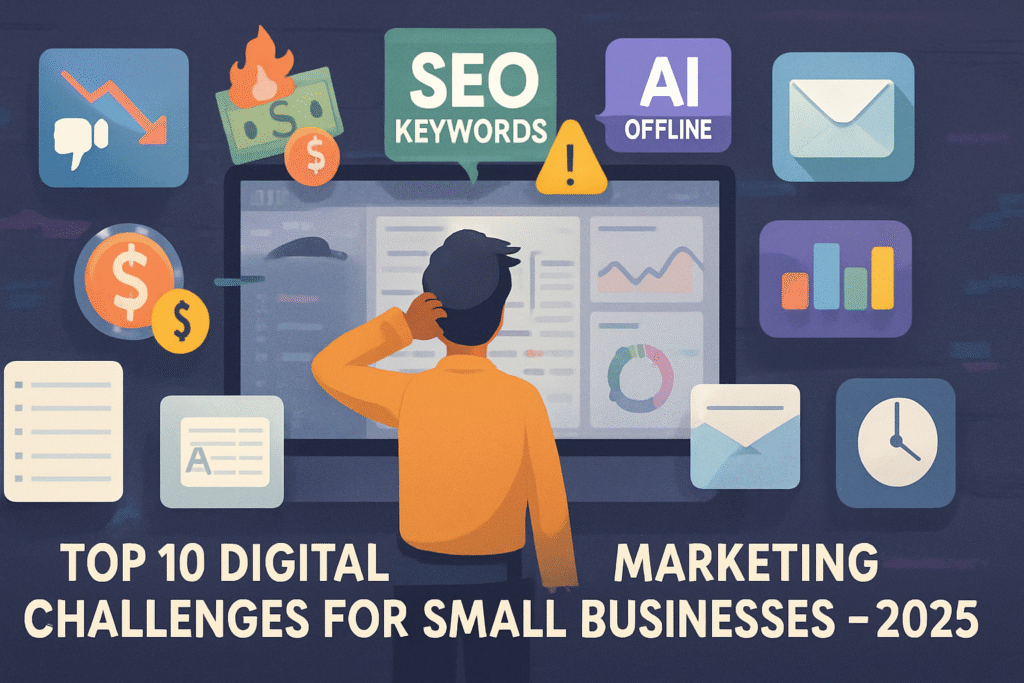10 biggest digital marketing challenges facing small business
Small businesses in 2025 face a host of digital marketing struggles unprecedented in complexity and scale. Here are the ten most significant challenges, each demanding fresh solutions and adaptability.
1. Declining Organic Reach on Social Media
Social platforms continue to limit the visibility of business content unless it’s paid, making organic growth harder for small brands that can’t invest heavily in ads. Algorithms change frequently, forcing businesses to constantly revise their strategies to stay visible.
2. Rising Cost of Digital Advertising
Paid advertisements on platforms like Google and Meta have become significantly more expensive. Small businesses often struggle to maintain competitive budgets while achieving sufficient ROI, as larger enterprises dominate ad space and drive up costs.
3. Evolving Data Privacy Regulations
New privacy laws and the phasing out of third-party cookies are limiting how businesses collect and use consumer data. Compliance with GDPR, CCPA, and other regional laws requires both knowledge and investment, which can overwhelm small firms.
4. Overwhelming Competition and Market Saturation
Digital channels are more saturated than ever, with both local rivals and global giants vying for consumer attention. Standing out now means developing a strong, authentic brand and often switching to niche-focused marketing strategies.
5. Adapting to Rapidly-Evolving AI and Automation
AI is changing everything from ad targeting to content creation, but leveraging these technologies effectively requires resources and skills many small businesses lack. The risk is falling behind as competitors automate and personalize at scale.
6. Shifting and Unpredictable Consumer Behavior
Customer priorities, preferences, and buying patterns can change overnight, influenced by social trends, news, and economic volatility. Predicting and responding to these shifts is especially difficult for lean teams with limited data analysis capacity.
7. Measuring ROI and Attribution
Tracking which campaigns drive conversions is increasingly complicated with multiple touchpoints and privacy restrictions. Small businesses often lack the sophisticated tools and analytics needed to reliably measure the impact of their efforts.
8. Creating Consistent, High-Quality Content
Content marketing remains essential, but producing fresh, engaging material that resonates—across blogs, social, and video—requires creativity, strategy, and time. Smaller teams may struggle to keep up without burning out.
9. Integrating New Technologies (Without Losing the Human Touch)
Trying to keep up with advanced marketing tools, chatbots, and automation while remaining authentic and maintaining customer relationships is a delicate balance. Many small businesses risk becoming “too robotic” or failing to implement tech that could save time and money.
10. Allocating Limited Budgets and Resources
Small businesses must juggle many demands on time and money. Budget limitations force hard choices between advertising, staffing, content, and technology investments—often with little room for error or experimentation

